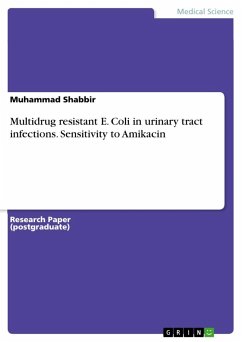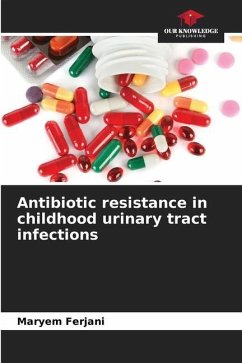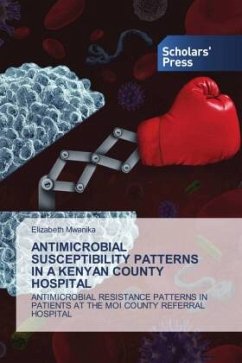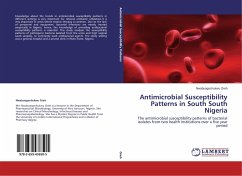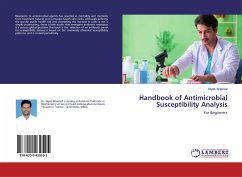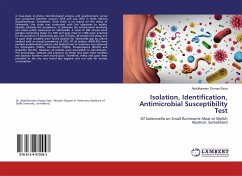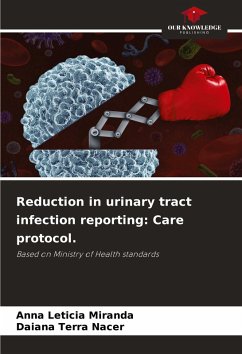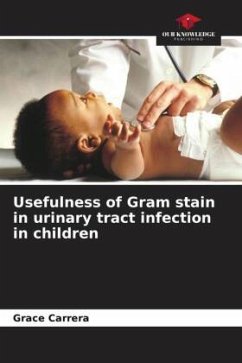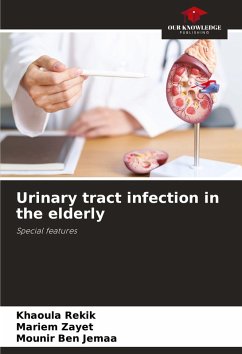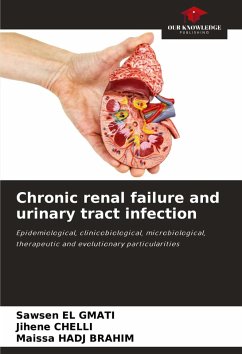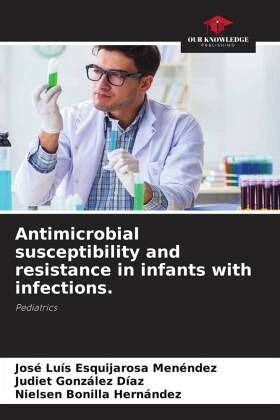
Antimicrobial susceptibility and resistance in infants with infections.
Pediatrics
Versandkostenfrei!
Versandfertig in 6-10 Tagen
29,99 €
inkl. MwSt.

PAYBACK Punkte
15 °P sammeln!
Descriptive, longitudinal and prospective study, at the Hospital Comandante Pinares de San Cristóbal, during the period May 2017 to May 2019. The objective was to determine the behavior of antimicrobial susceptibility to first choice antimicrobials in infants with urinary tract infection. The variables were: age groups, sex, clinical forms of presentation, isolated germs, antimicrobial susceptibility and alterations in complementary examinations. The study universe consisted of 127 infants admitted to the pediatrics service with a diagnosis of urinary tract infection, respecting inclusion and...
Descriptive, longitudinal and prospective study, at the Hospital Comandante Pinares de San Cristóbal, during the period May 2017 to May 2019. The objective was to determine the behavior of antimicrobial susceptibility to first choice antimicrobials in infants with urinary tract infection. The variables were: age groups, sex, clinical forms of presentation, isolated germs, antimicrobial susceptibility and alterations in complementary examinations. The study universe consisted of 127 infants admitted to the pediatrics service with a diagnosis of urinary tract infection, respecting inclusion and exclusion criteria. We observed that 3rd generation cephalosporins showed high levels of resistance while Amikacin showed a low level and the highest sensitivity was shown by Nitrofurantoin. Urinary tract infection predominated in the female sex, except in the age group between 1 and 3 months of age, where the male sex predominated, being also in this age group where there was a higher incidence. Escherichia coli was the most frequent microorganism.





